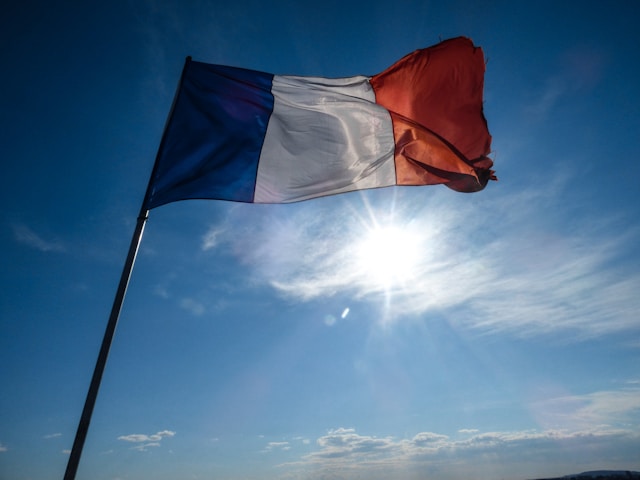As Russian forces ramp up attacks, Ukrainian air defences successfully intercept multiple missiles and drones targeting cities across the country
On July 13, 2024, Kherson endured intense shelling as Russian forces launched a significant assault on the city. Roman Mrochko, head of the regional military administration, reported that the bombardment primarily struck the central Dnipro district, lasting about an hour. Fortunately, there were no casualties, but the assault caused extensive damage to buildings, raising concerns about potential impacts on the local water supply. Restoration efforts are currently underway to address the damage inflicted on the infrastructure.
In the broader context of the ongoing conflict, Ukrainian air defences showcased their capabilities by shooting down five cruise missiles and 11 drones during the night. Lt Gen Mykola Oleschuk, commander of Ukraine’s air forces, confirmed that the missiles, launched from the Saratov region of southern Russia, were intercepted over the regions of Khmelnytskyi, Sumy, and Cherkasy. This defensive action came amid a wave of attacks that included a total of 19 drones, with eight presumed to be decoys aimed at overwhelming air defences.
Embed from Getty ImagesMeanwhile, the situation remains perilous for civilians. In Kharkiv, three people sustained injuries from a landmine explosion in the village of Staritsa, underscoring the ongoing danger in areas close to the conflict zone. Authorities have warned of ongoing mine clearances in regions adjacent to the Russian border, reflecting the persistent risks faced by local residents.
Diplomatic tensions also escalated this week. A phone conversation took place between Russian Defense Minister Andrei Belousov and U.S. Secretary of Defense Lloyd Austin, aimed at discussing strategies to reduce the risk of escalation. This dialogue was prompted by rising tensions following the U.S. decision to deploy long-range missiles in Germany, a move that the Kremlin perceives as a step towards rekindling Cold War-like hostilities.
In a significant diplomatic effort, Ukrainian President Volodymyr Zelenskiy is set to visit the UK next week, where he will address European leaders regarding Ukraine’s ongoing challenges. He is also scheduled to meet with Irish Taoiseach Simon Harris, focusing on efforts to return approximately 20,000 children forcibly relocated to Russia and Belarus.
On the legal front, Ukraine’s top prosecutor is calling for the International Criminal Court (ICC) to prosecute Russia for a recent missile strike on a children’s hospital in Kyiv that resulted in 38 deaths, including four children. This strike, along with others throughout Ukraine, highlights the severe impact of the conflict on civilian populations.
The Kremlin has issued stern warnings regarding any potential decision by Western nations to allow Ukraine to strike deeper into Russian territory, labelling it a “dangerous escalation.” Dmitry Peskov, the Kremlin spokesperson, asserted that such actions would constitute a provocation.
As the conflict continues, Russia’s decision to open a new front in the Kharkiv region has led to a spike in casualties. The UK Ministry of Defence reported an alarming increase in average daily casualties, with May and June witnessing over 70,000 total casualties combined.
In a broader context, Russia’s state-owned telecom provider announced plans to slow down YouTube, citing “technical problems,” amid ongoing efforts by Russian authorities to control access to information.
Analysis
Political
The recent surge in violence in Ukraine highlights the ongoing volatility of the region’s political landscape. The Ukrainian government continues to seek international support while facing internal challenges, including calls for transparency and accountability. President Zelenskiy’s diplomatic engagements underscore Ukraine’s effort to solidify alliances with European leaders as the conflict escalates. The increasing involvement of Western powers reflects the geopolitical stakes at play, complicating the path to peace.
Social
The human cost of the conflict is profound. With civilians caught in the crossfire, the war has exacerbated existing social divisions and heightened tensions within affected communities. The ongoing shelling in Kherson and the plight of families in Kharkiv reveal the dire realities of life under siege. As humanitarian needs grow, local populations increasingly depend on international aid and the work of organizations like the UN to address urgent needs and provide stability.
Racial
The conflict’s impact on various ethnic groups, including the treatment of minorities in occupied areas, remains a significant concern. Discrimination and violence can escalate in wartime, raising alarms about the potential for ethnic tensions to deepen. Ensuring the safety and rights of all civilians, regardless of ethnicity, is critical in maintaining social cohesion amid chaos.
Gender
Women and children are disproportionately affected by war, often facing heightened risks of violence, displacement, and exploitation. The ongoing crisis in Ukraine further emphasizes the need for gender-sensitive approaches in humanitarian responses and recovery efforts. The focus on the return of displaced children also highlights the urgent need to protect vulnerable populations amidst ongoing hostilities.
Economic
The war has severely disrupted Ukraine’s economy, with significant impacts on infrastructure, agriculture, and livelihoods. As cities like Kherson face destruction, the economic implications are profound, leading to increased poverty and reduced access to essential services. The conflict also affects regional stability, influencing economic relations and recovery efforts across Europe.
